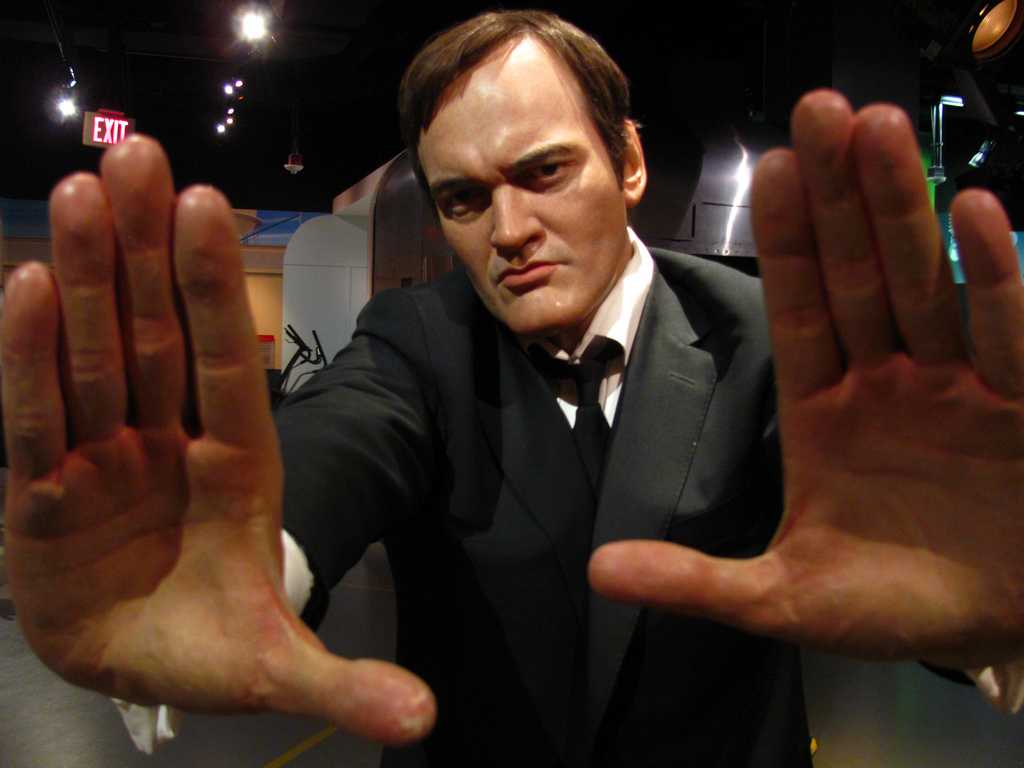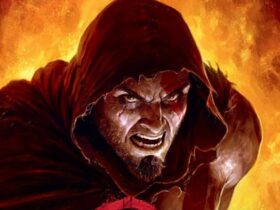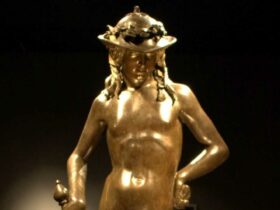Here are what we think are the best films by Quentin Tarantino: director, actor, icon, the top 10 this time adds an “almost” which we will explain to you immediately
Quentin Tarantino is one of the most successful directors in the history of cinema, with a particularity: in his career he decided to make ten films and no more. The tenth film, The Movie Critic, is still in the works: we don’t know the protagonist, the plot has only just been outlined (it will be a sort of successor to Once Upon a Time in… Hollywood), we don’t even know much about the cast yet, but there are rumors that it could be a sort of reunion of all the actors which made the director’s films famous. The fact is that in this top 10 it will be more like a 9+1 of Quentin Tarantino’s best films.
Quentin Tarantino was born on March 27, 1963 in Knoxville, Tennessee, by an American musician and actor of Italian origins whom he never met, since he left his mother before he was born. At the age of two he moved to California with his mother, who met and married the musician Curt Zastoupil, with whom the young Quentin developed a strong bond, later saying that it was with his stepfather that he went to see Bambi at the cinema, the only film that scared him in his life. In 1971 the family moved to El Segundo, in the South Bay area of Los Angeles, where Tarantino became passionate about spaghetti westerns, becoming a big fan of Sergio Leone. In 1977, at just fourteen years old, Tarantino wrote his first screenplay. In 1981 he began taking acting lessons and joined James Best’s Theater Company.
In 1986, while still working at the Video Archives, Tarantino attempted to take on the role of director for the first time by starting to shoot a film that should have been titled My Best Friend’s Birthday, on a screenplay written by him together with his friend and colleague Craig Hamann . However, it was at the end of the 80s that Tarantino achieved great success for the first time, selling for 50,000 dollars the screenplay for True Romance and Natural Born Killers, sold for 400,000 dollars and brought to the big screen in 1994 by Oliver Stone. In 1990 he wrote From Dusk Till Dawn, then directed in 1995 by Robert Rodriguez, in which Tarantino also had a leading role alongside George Clooney and Harvey Keitel. The sale of his first works put him in the spotlight. At a party in Hollywood he met producer Lawrence Bender, who encouraged Quentin Tarantino to continue writing screenplays. The result of that meeting was Le iene (Reservoir Dogs). With this film his real career as a director began.
10. Grindhouse – Planet Terror | The best films of Quentin Tarantino
Grindhouse – Planet Terror is a 2007 splatter film written and directed by Robert Rodriguez. The film is one of two segments of Grindhouse, homage to the exploitation films of the seventies. This is our +1, because in reality it is not by Quentin Tarantino but by Robert Rodriguez, even if in fact the authorship of this (and of the next film in the top 10) can well be considered shared.
Lieutenant Muldon and his men, following a commercial exchange of chemicals, end up voluntarily exposed to a mutagenic substance that transforms them into a sort of zombie. In the meantime, the beautiful Cherry, who left her job as a stripper a few hours ago, meets her ex-boyfriend El Wray in a seedy bar, who decides to give her a lift. During the journey, however, they are attacked by an infected person, who bites off her leg. The hospital where she is taken has other cases of people being attacked, and it is clear that Cherry and El Wray’s only hope is to join forces with the sheriff and a group of survivors to escape the ravenous “living dead”. Manifesto of a free and unbridled cinema, Planet Terror exasperates beyond all limits the cinephile passion of Rodriguez and Tarantino who enjoy inserting homages and references to various genre cults of the past into the schizophrenic narrative.
9. Grindhouse — Death Proof | The best films of Quentin Tarantino
Inevitably Death Proof is the ugly duckling of the heap of films directed by Quentin Tarantino: it suffers from the shortened duration and the declared belonging to the slasher genre. However, on the one hand it marks the first collaboration between Tarantino and Kurt Russellan actor born to become an icon of great directors (see John Carpenter) and remains an iconic film and perhaps more niche than others.
An old Hollywood stuntman, serial killer in association with his modified race car, targets three girls. He takes them out. Some time later he bets three more. But this time he didn’t count on revenge. A film as a pretext for all of Tarantino’s visual (and not only) fetishism, with a multiple point of view car crash sequence the likes of which had never been shot before in the history of cinema. And there’s room for a little sadistic Girl Power too.
8. Jackie Brown | The best films of Quentin Tarantino
For some, Jackie Brown is Tarantino’s best film. Meanwhile, it is the first with a non-original screenplay (the basis is Elmore Leonard’s Rum Punch). Then, he has one less brazen violence, a slower pace, and is acted more subtly. The result is a neo-noir in which everyone deceives everyone, a tribute to 70s blaxpoitation cinema which also has the merit of having relaunched the careers of two icons such as Pam Grier (the title heroine) and Robert ForsterJackie’s charming bail bondsman.
Jackie Brown supplements her meager salary as a hostess by smuggling money for Ordell Robbie, an arms dealer as dazed as he is unreliable with the blonde Melanie at his side, one of his many companions, and the clumsy Louis Gara, his right-hand man. One day, Ordell receives a call from prison from Beaumont, one of his henchmen: he asks him to release him and pay his bail. Ordell then goes to Max Cherry, a bail bondsman, who gets Beaumont out of jail. That same evening, Ordell decides to kill Beaumont for fear that the latter, very intimidated by the prison environment and with a large charge on his shoulders due to the possession of illegal weapons, will talk about his dealings with the police, but now it’s too much late. Tarantino calls it his “companion film”, focusing more on the characters than the plot. Among his films, it is the one that, years later, continues to improve after each viewing.
7. Reservoir Dogs | The best films of Quentin Tarantino
Quentin established who Tarantino was right from his debut: someone who knows exactly what kind of film he wants to make. In this case, a heist movie which shows nothing of the heist itself, but only the tension before and the chaos after. The sources of inspiration are Kubrick’s Armed Robbery and the Chinese City on Fire, but the style is completely personal and completely recognizable. Who finds new ways to approach the genre and opens a crime thriller with a series of gangsters in suits (him included) discussing the hidden meanings of Madonna’s Like a Virgin.
Pop culture is the driving force behind his vision. As well as graphic violence and very dark humor. If in 1955 Joseph Lewis had used percussion to musically punctuate a torture sequence in The Big Combo, Tarantino chose a cheerful piece like Stuck in the Middle With You by Stealers Wheel to accompany Mr. Blonde as he cuts off a policeman’s ear while dancing. . Not to forget the opening credits to the tune of Little Green Bag by George Baker Selection: like King Midas, even the songs that Quentin Tarantino touches turn gold.
6. The Hateful Eight | The best films of Quentin Tarantino
A single location and the action made, practically, only by writing: Tarantino can do this too. The Hateful Eight is a chamber western disguised as an Agatha Christie mystery. Set during a blizzard at a Wyoming border station, the film is deceptive from the start. After an overture (also orchestral) in large snow-covered spaces, the story moves inside, and reveals itself as the theatrical piece it was born to be.
The splendid 70mm format becomes the means to examine every flicker of the human face (and soul). And what faces: Samuel L. Jackson, Tim Roth, Kurt Russell, Michael Madsen, Bruce Dern, più l’unica bad girl Jennifer Jason Leigh. The rest is done by Ennio Morricone’s Oscar-winning soundtrack, closer to the menacing sounds of The Thing than to his westerns. Perhaps underestimated by many, but it is a quintessential Tarantino film.
5. Django Unchained | The best films of Quentin Tarantino
A new alternative history lesson, less sophisticated than Inglourious Basterds but even wilder and much more fun. After diving into the Second World War to burn the Third Reich, including Hitler, Tarantino explores slavery and the still-taboo subject of black anger toward white Southerners with wit, ferocity, and a rhapsody of cinematic violence like no other.. Django Unchained is a glorious postmodern Western starring Jamie Foxx, Christoph Waltz and a terrifying Leonardo DiCaprio at their best.
The most Tarantinian moment comes when Django and Dr. Schultz take out an entire house of slavers in luxurious slow motion with a mix of 2Pac and James Brown in the background. Like Sergio Corbucci in 1966, Tarantino obeys the only commandment that matters to him in exploitation films: everything is permitted. Revenge fantasies don’t leave much room for moral lessons: Django wants blood (more than anatomically possible) and explosions, Tarantino too (and he finds it firsthand as an actor in a hilarious side quest).
4. Once upon a time in… Hollywood | The best films of Quentin Tarantino
Tarantino’s ninth and penultimate film “is not a Tarantino film”, many say. They’re wrong: Once upon a time in… Hollywood is 100% Quentin Tarantino. Except that things inevitably change and this melancholic declaration of love to a Los Angeles that no longer exists, shaken by the violence of the Manson Family, and to an industry that is changing, is the underlying message of an ensemble film like no other. In the total homage to spaghetti westerns, in the more than enthusiastic foot fetishism of Margot Robbie and Margaret Qualley, in changing (another) history.
An Oscar-worthy Brad Pitt returns to being the hero you only find in Quentin’s books, the stunt-man who will never be a star, but willing to do anything for his friend the star on sunset boulevard, Leonardo DiCaprio. And then there’s the budding diva Sharon Tate, to whom the director gives another, very tender chance. Tarantino charges…
















Leave a Reply
View Comments